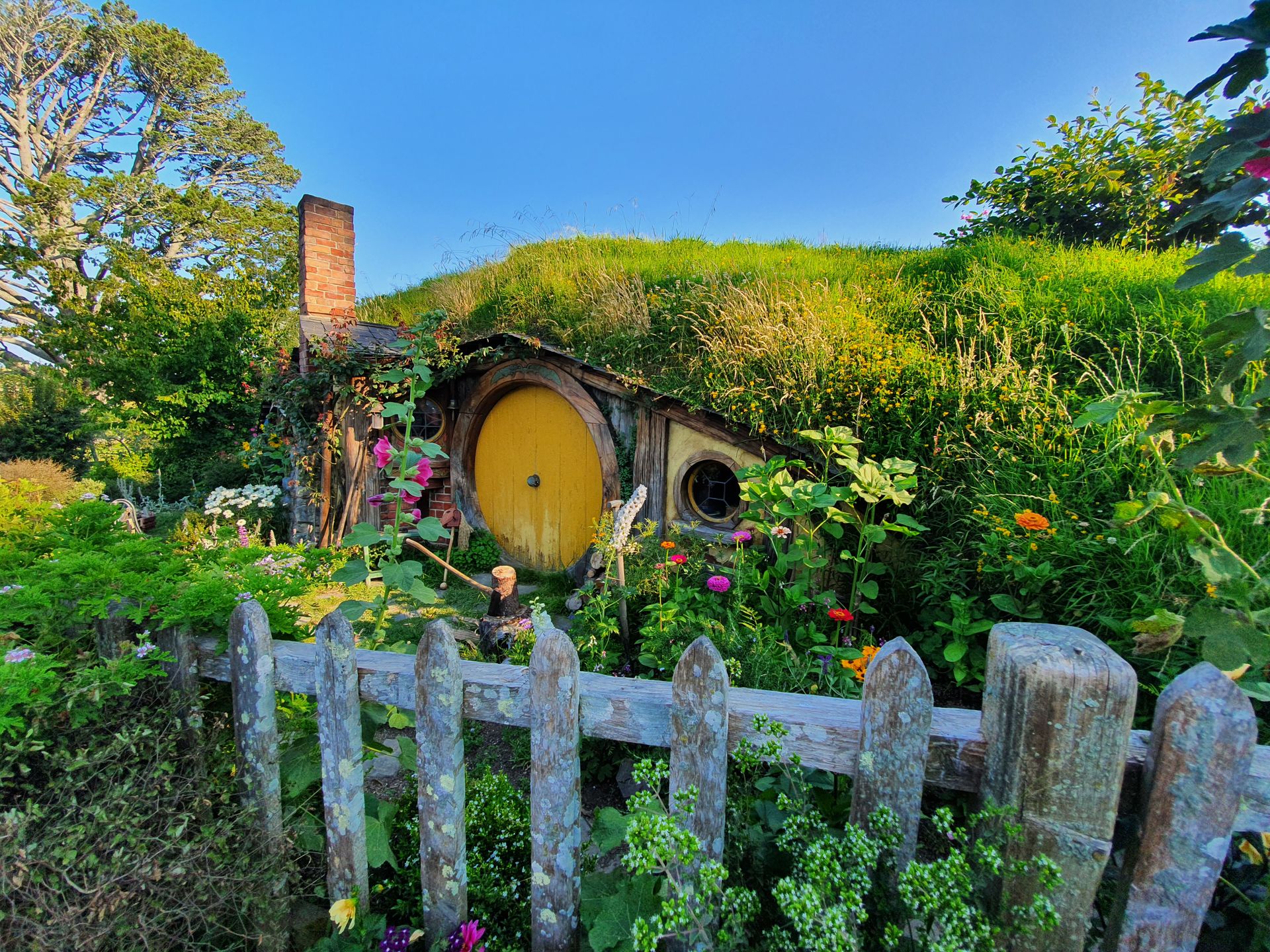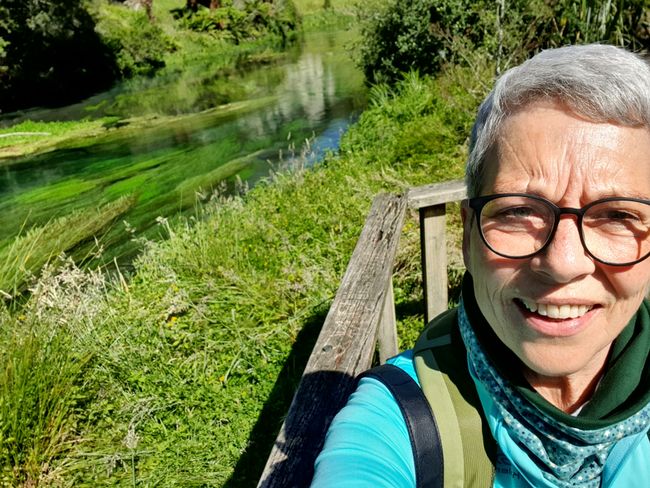8.1.20 Balls, Dunes, Mountains, Jungle, & the King of the Forest
បោះពុម្ពផ្សាយ: 15.01.2020
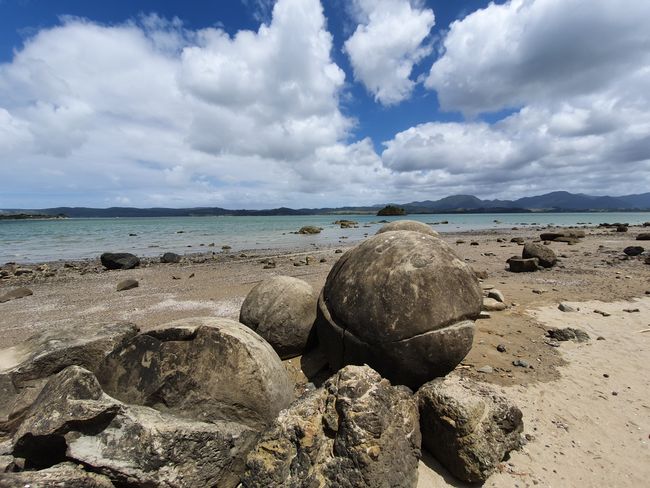
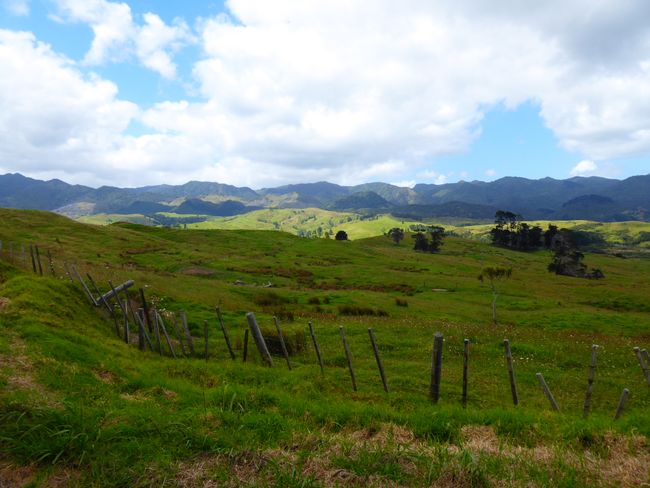
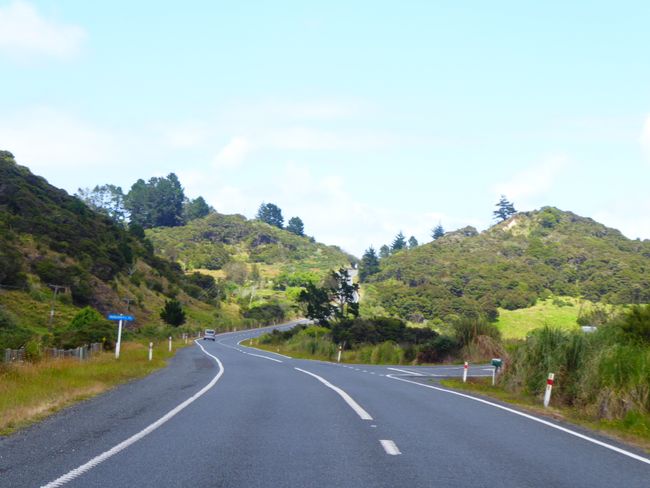
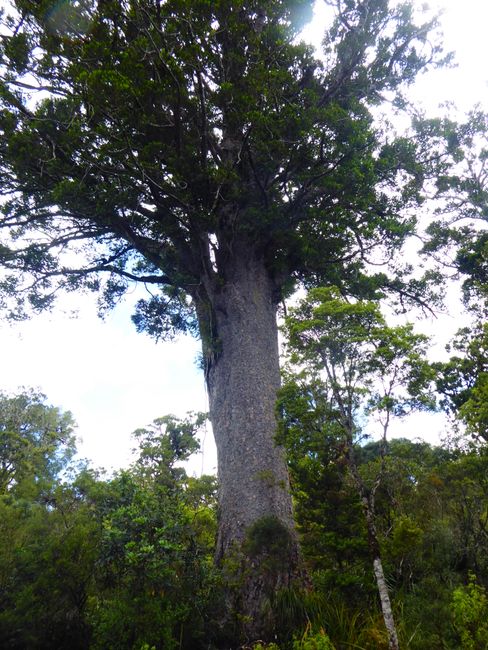
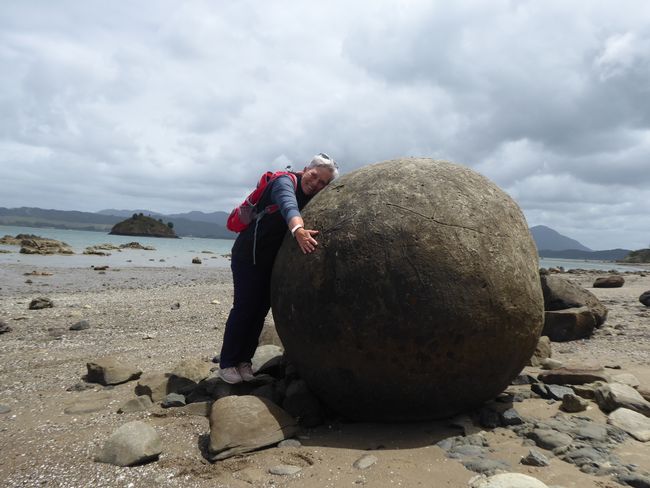
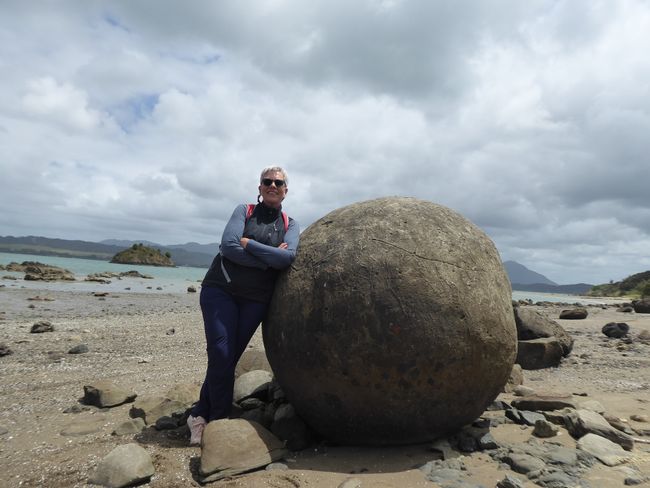
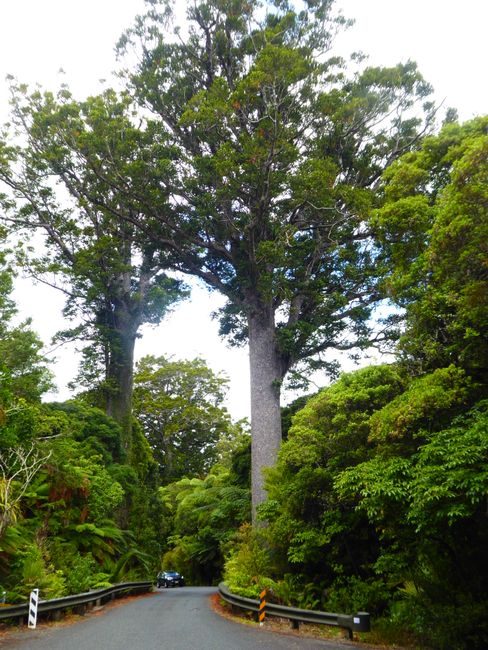
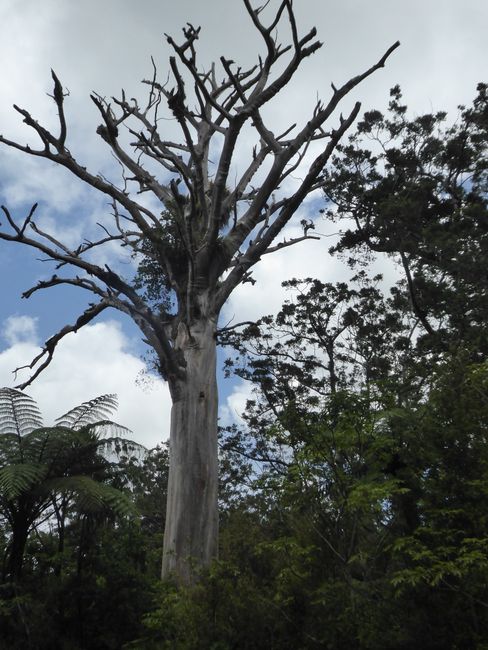
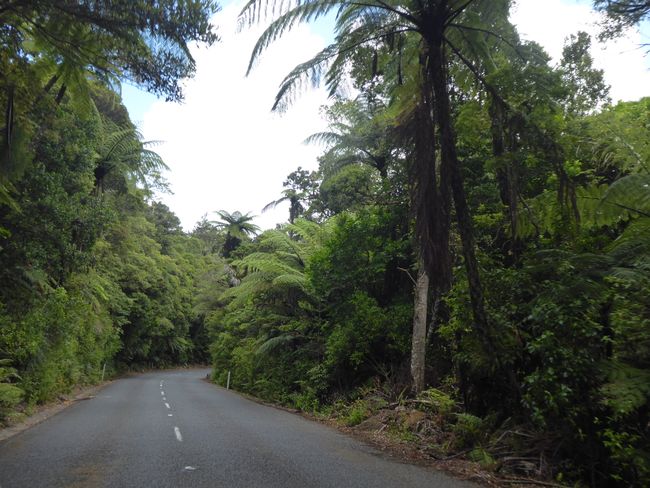
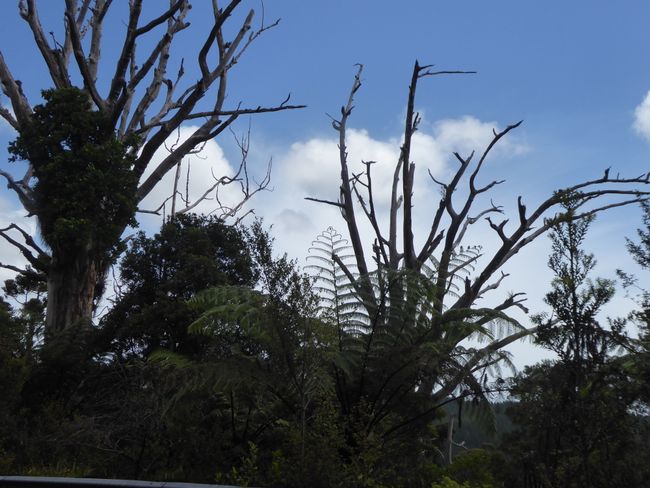
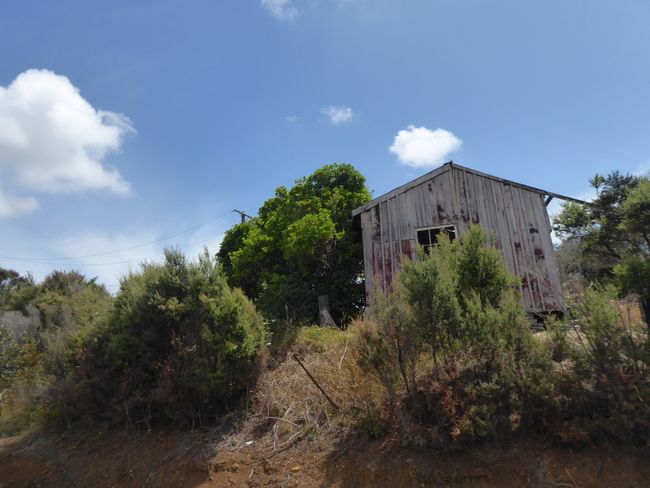
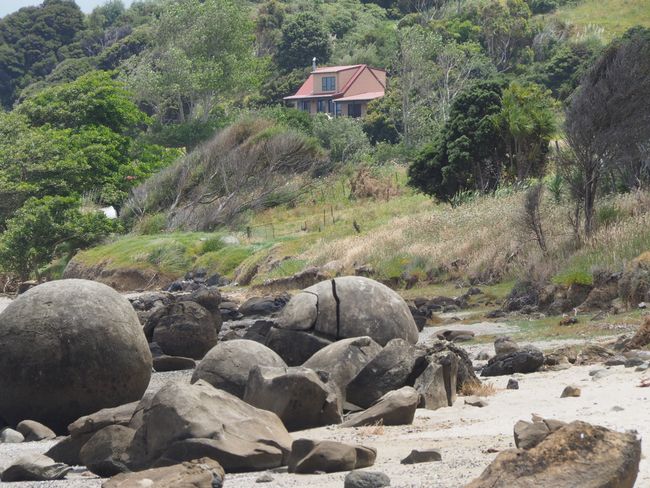
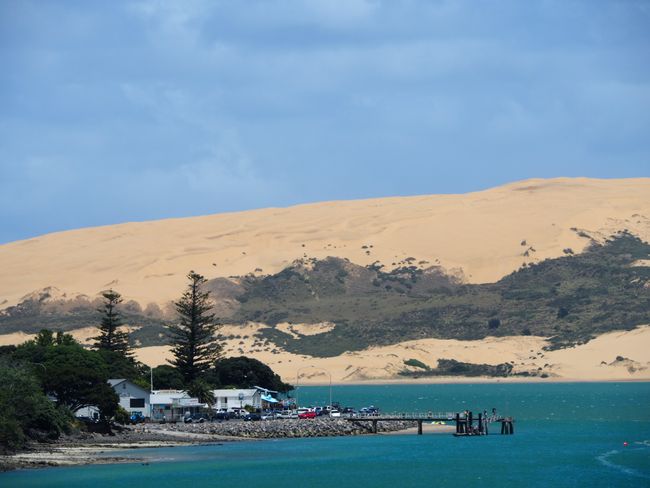
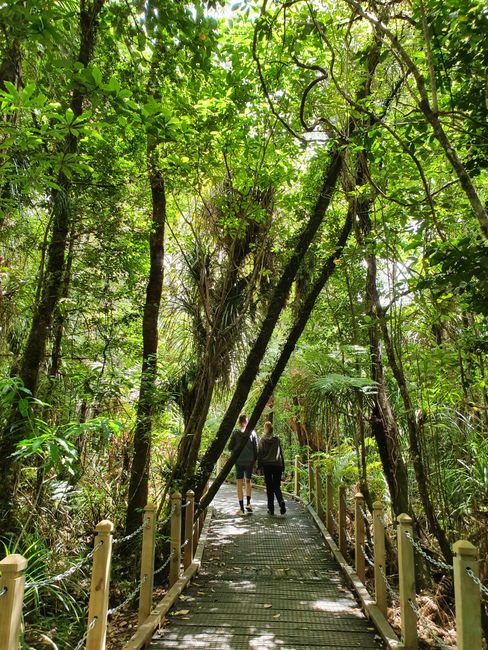
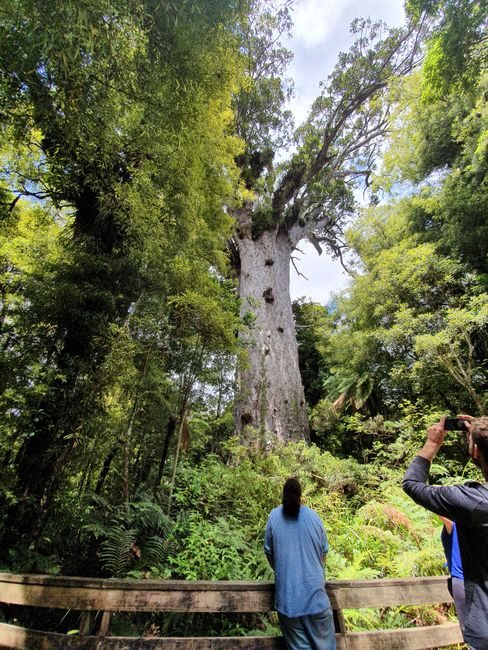
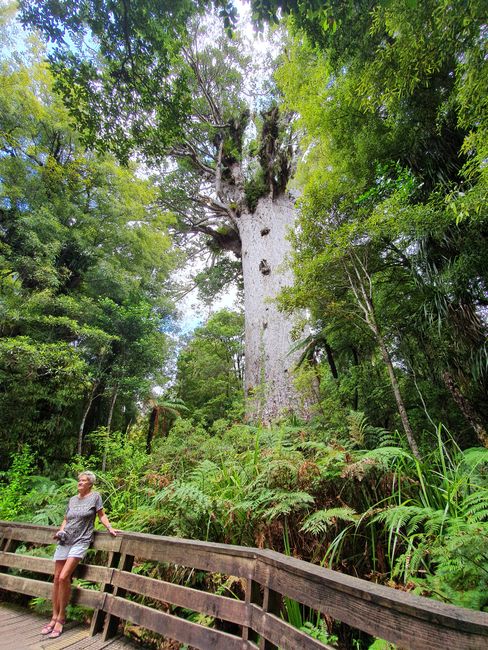
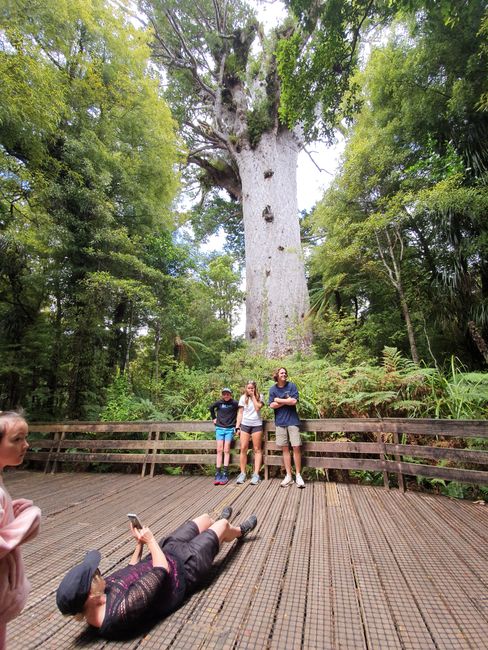
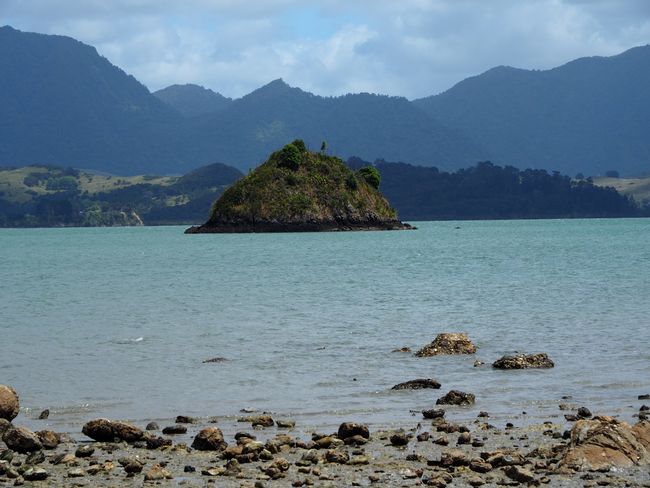
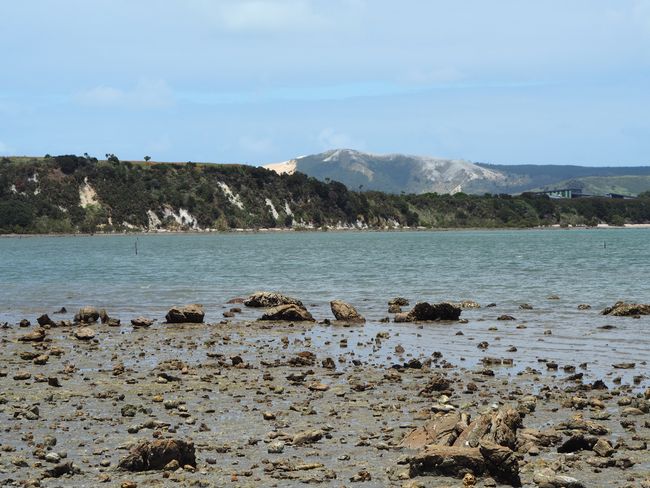
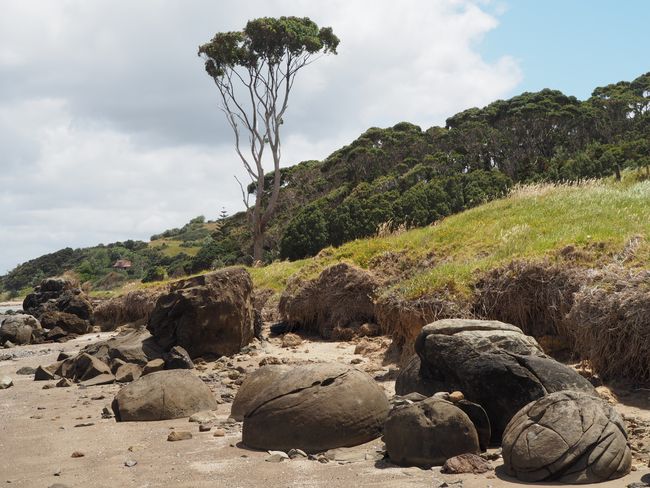
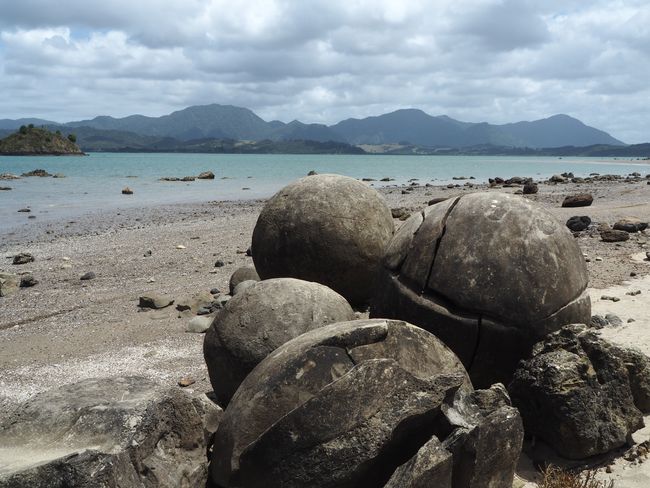
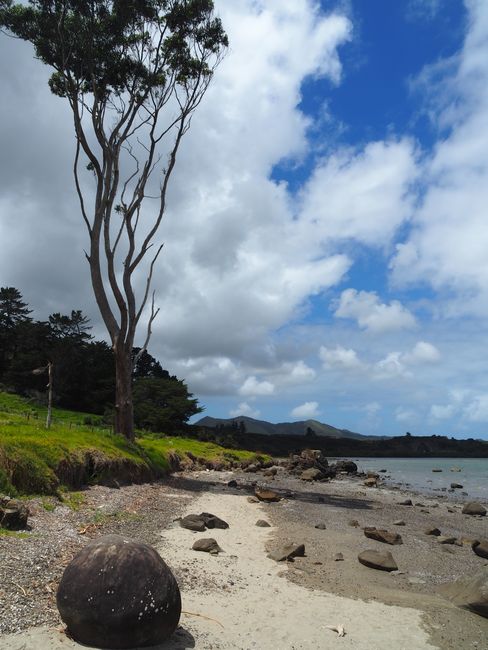
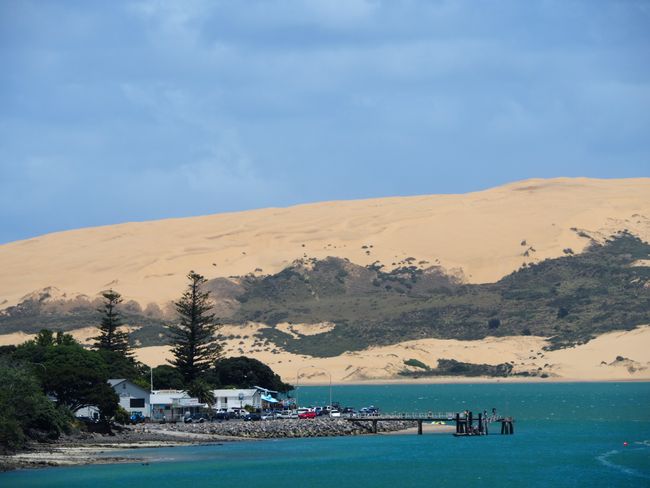
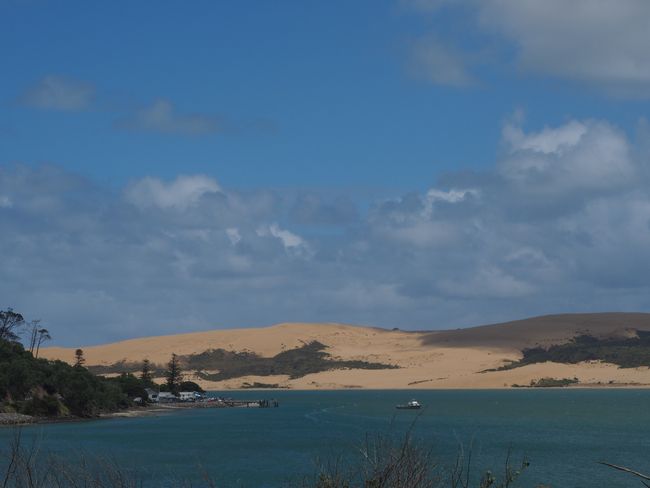
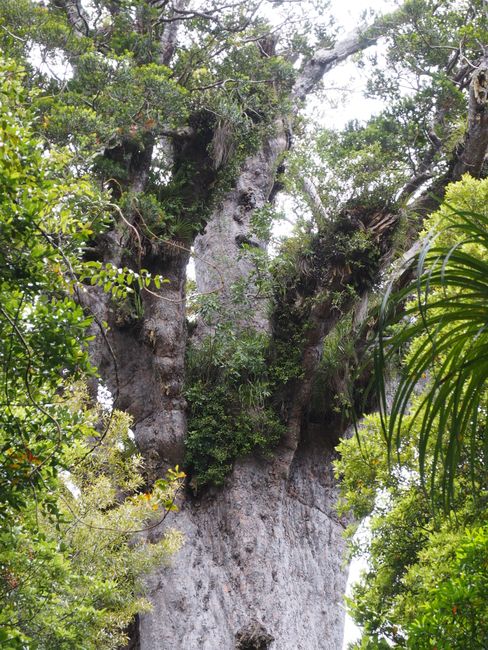
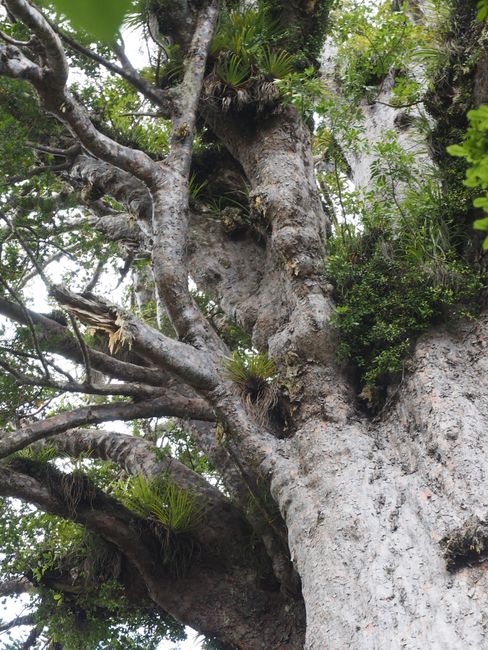
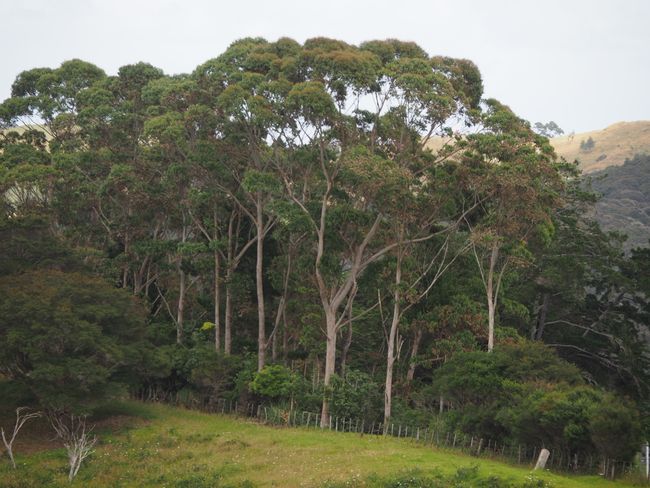
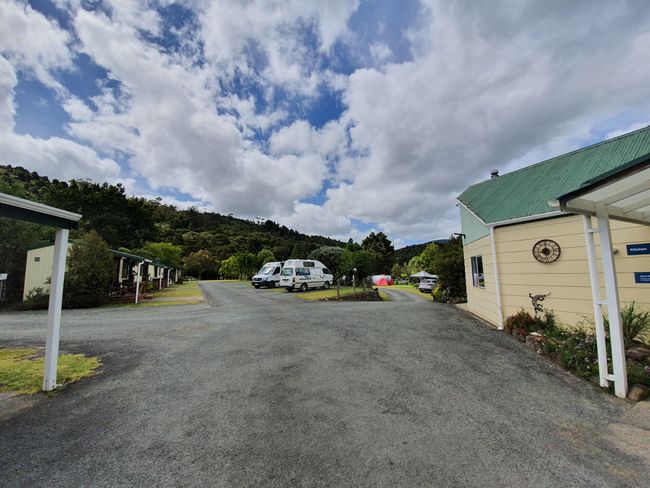
ជាវសំបុត្រព័ត៌មាន
The night was quite cold, or at least it felt that way when I went to bed after 2.5 hours of unsuccessful kiwi hunting around midnight. Nothing happened except for several mosquito bites through my pants and the repeated call of a kiwi. Despite wearing 4 layers, I was so cold that I couldn't fall asleep for hours, despite the temperature being 11 degrees Celsius.
The morning is quite pleasant at 15 degrees Celsius, and since the weather forecast is slightly better for the West Coast and I can take a different route there, I set off across the North Island towards the west.
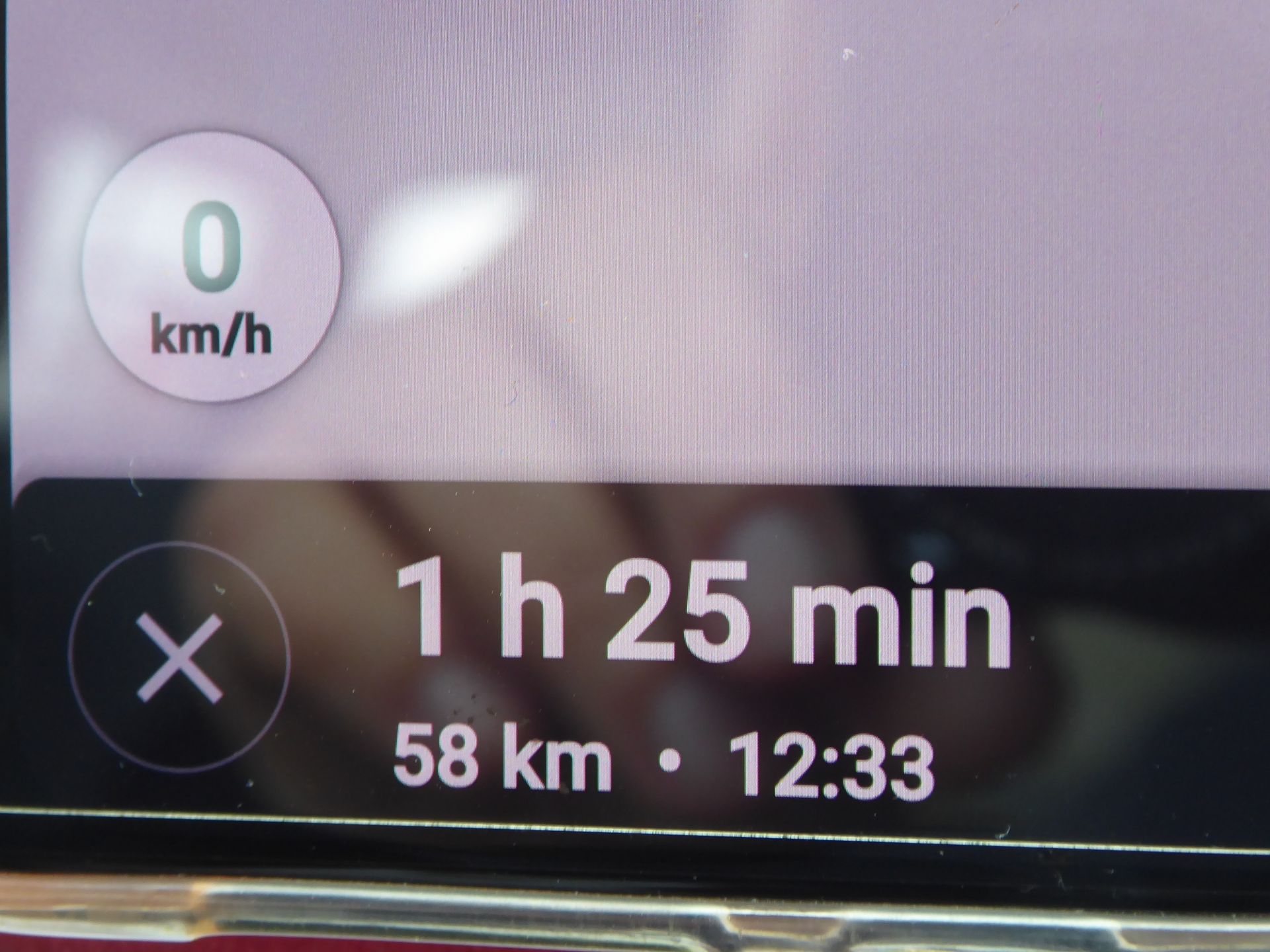
Initially, it's gently hilly here in the Far North, sparsely populated, with cornfields and cattle pastures dominating the landscape. And a lot of podocarps, these elegant, often more than 20 meters tall trees with only a leafy crown. Wikipedia calls them yellowwoods. Well, that doesn't help much either. I associate them with New Zealand and Tasmania.

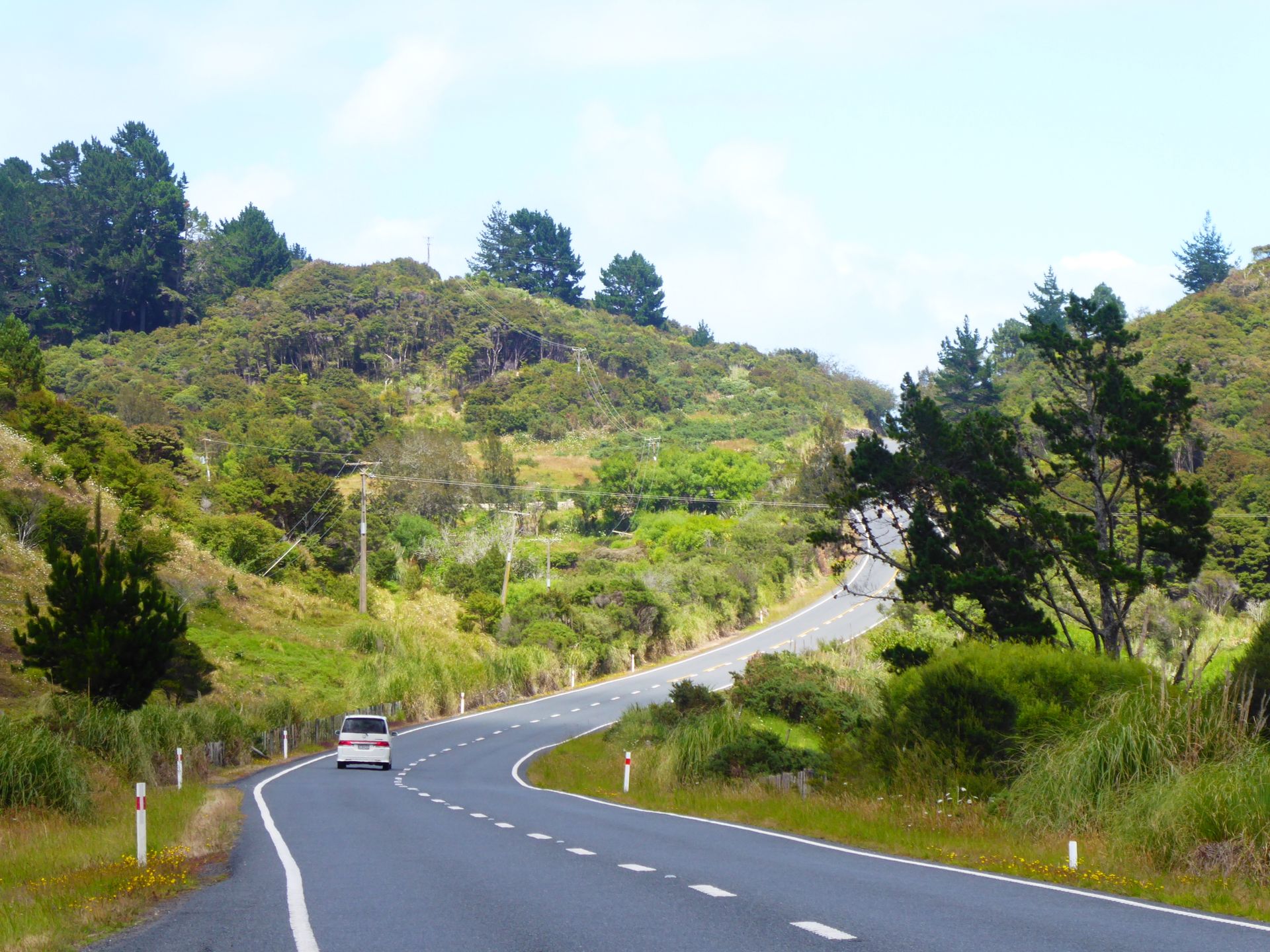
My navigation system shows me a suspiciously strange travel time of 1:20 hours for 58 km. I think I better not take that route, when at the last possible turnoff for the Mataraua Road, there is a sign warning against continuing with a camper or similar, because the road is narrow and winding through the mountains. Although this would be the direct route through the Mataraua Forest to the Kauri Coast, I don't need that today.
So I turn onto the Wharepunga Road and shortly after follow Highway 12 to the west, which is a great road to drive on. The wind has also calmed down and soon I enjoy expansive views and in the distance, mountains with endless forests.

This morning I was by the water, then gentle hills, and now mountains are in sight again, and then the Hokianga Harbour, fed by the Tasman Sea. Due to the change in route, I now get to see the Koutu Boulders, which were on my bucket list for this trip. Joy!

On the South Island, there are the Moeraki Boulders, similar formations whose cores are up to 5 million years old. They are partly huge boulders lying on the beach, eventually developing cracks and essentially bursting open. The erosion caused by the water exposes more and more of these boulders, and here on the deserted Koutu Beach, there are countless boulders in various stages of decay.

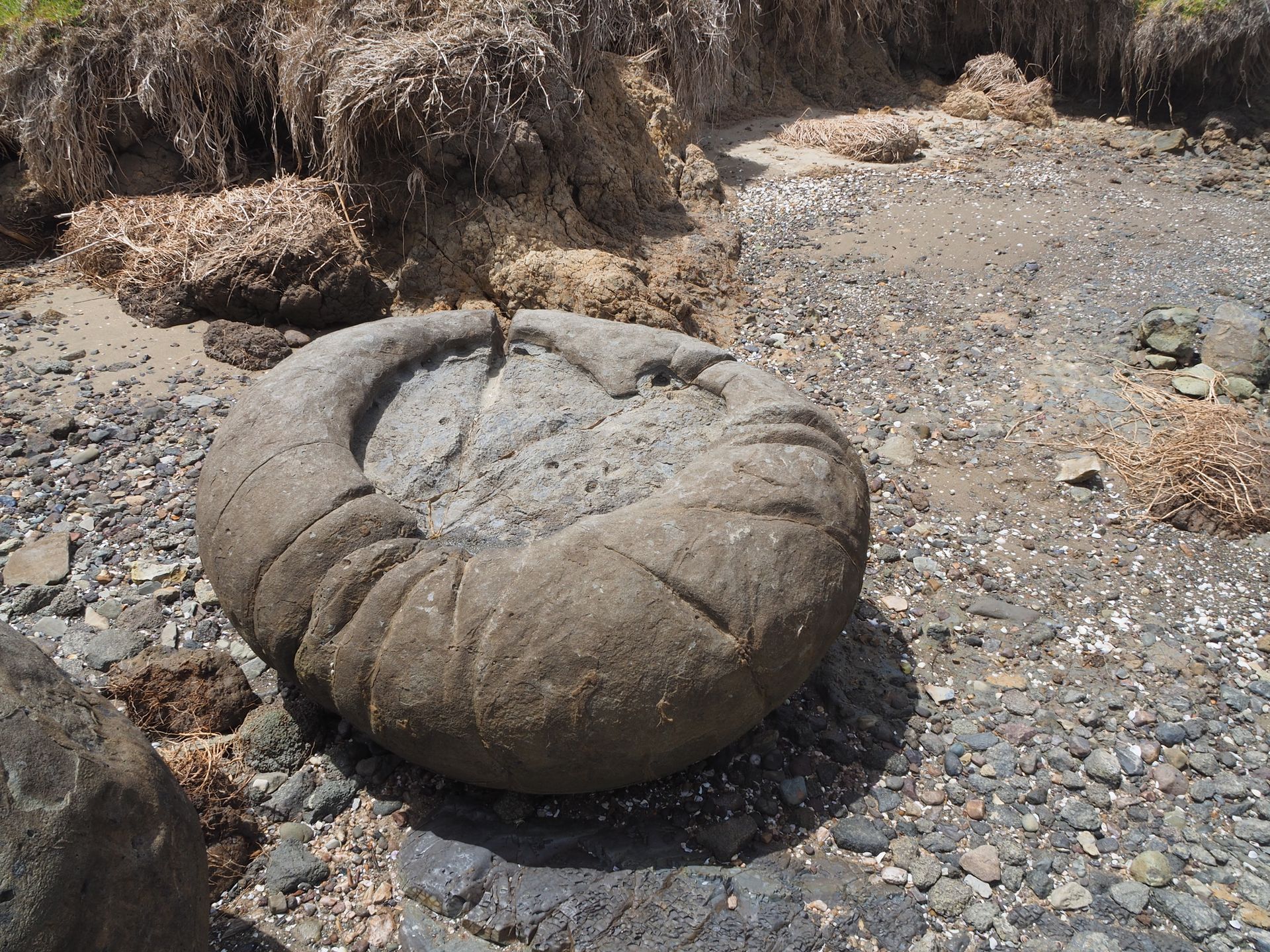
Since they can only be seen at low tide, I'm really lucky that it coincides with my arrival today. If you want to know more about the geomorphological development of these stone formations with diameters of up to 3 meters, please google it.

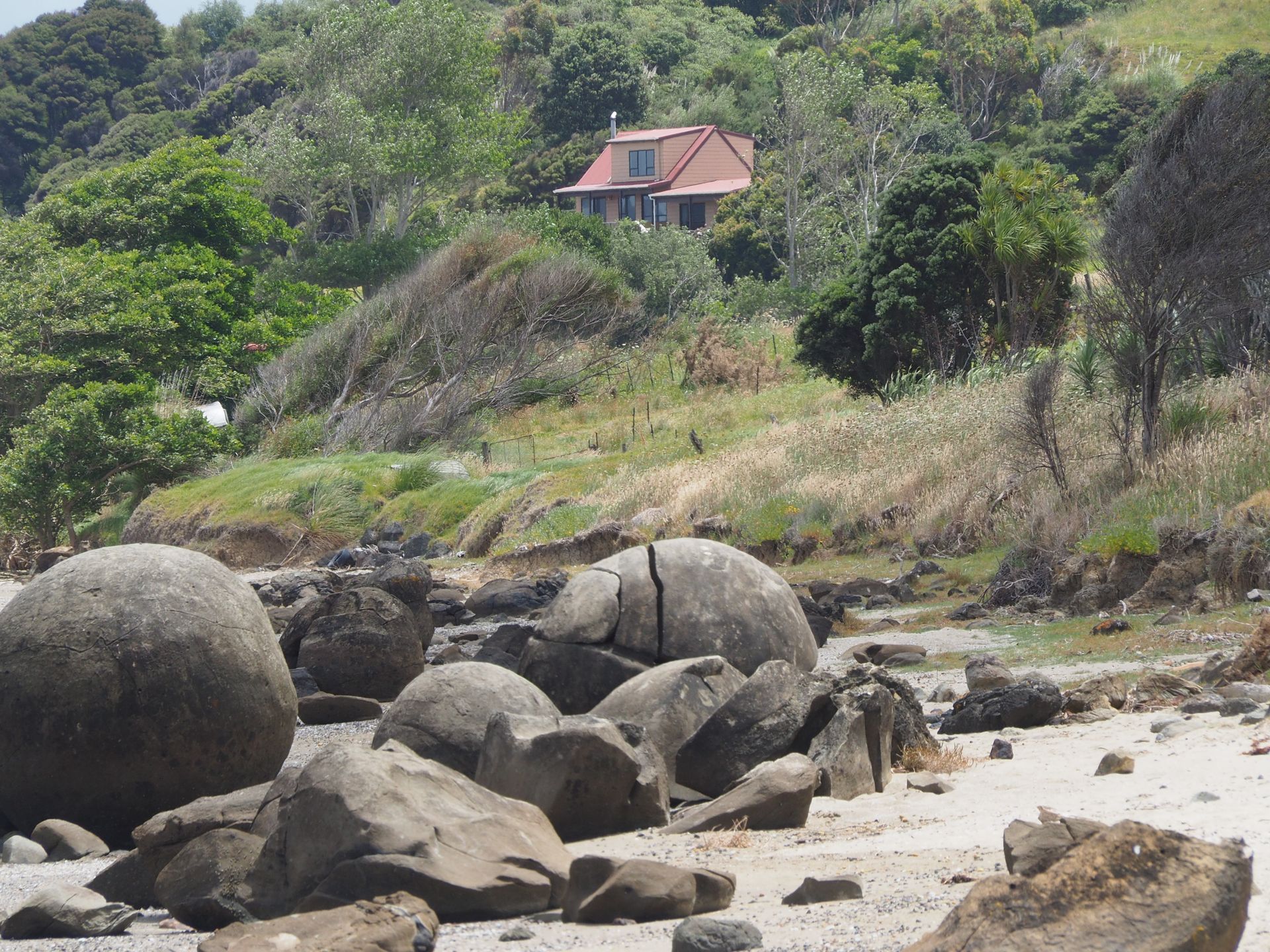
In addition to the beach with these boulders, the view also falls on huge dunes. Opononi and Omapere are not far away. These are wonderfully laid-back holiday resorts at the mouth of the turquoise-green Hokianga Harbour.
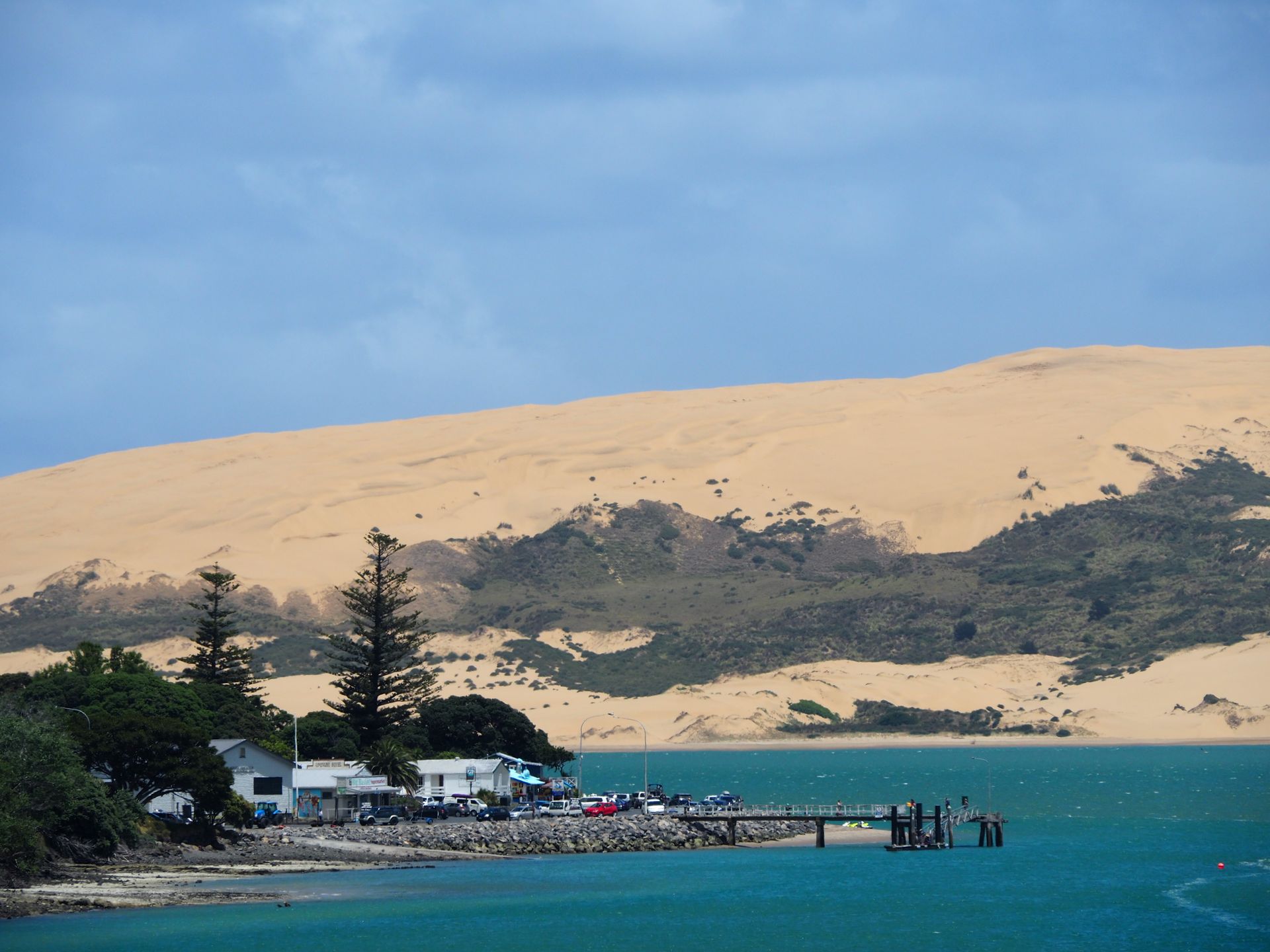
Pristine white beaches beckon, and for the second time in 5 years, I'm sitting in the little café next to the i-site, enjoying a super delicious muffin and a flat white, listening to an old hippie playing the guitar 🎸 while looking at white dunes and palm trees. Where were the mountains again? Oh yes, where the forest was...
I continue on Highway 12, which now winds slightly inland and the view of the sea is only possible in the far distance. Not only with the sign 'Waipoua Forest' around here begins a section of about 40 km through a jungle-like dense growth of trees ferns (which always look like palm trees), countless kauris, ferns, and climbing plants that have just as many twists and turns as the road.

Fortunately, there is not too much traffic, so I can drive my van here without being harassed. This rainforest is breathtakingly high, to the left, right, and above me, and I'm glad I crossed over here. I drove this stretch during my 2-month journey from the South to the North Island and was already awestruck by this incredibly lush vegetation.

Since I'm already here, I want to pay my respects to the ruler of the forest: Tane Mahuta! Tane is the Maori god of the forest. This giant tree is estimated to be around 2000 years old and is therefore one of the oldest living beings on Earth, if not the oldest known one. Only when there are people in the foreground can the sheer size be partially recognized. With a height of more than 51 meters, it is a giant, but the trunk, with almost 14 meters, also provides a solid base for this tree. Since the tree stands quite close to the road, the detour here is not a big effort. Clean and disinfect your shoes when going in and when leaving.

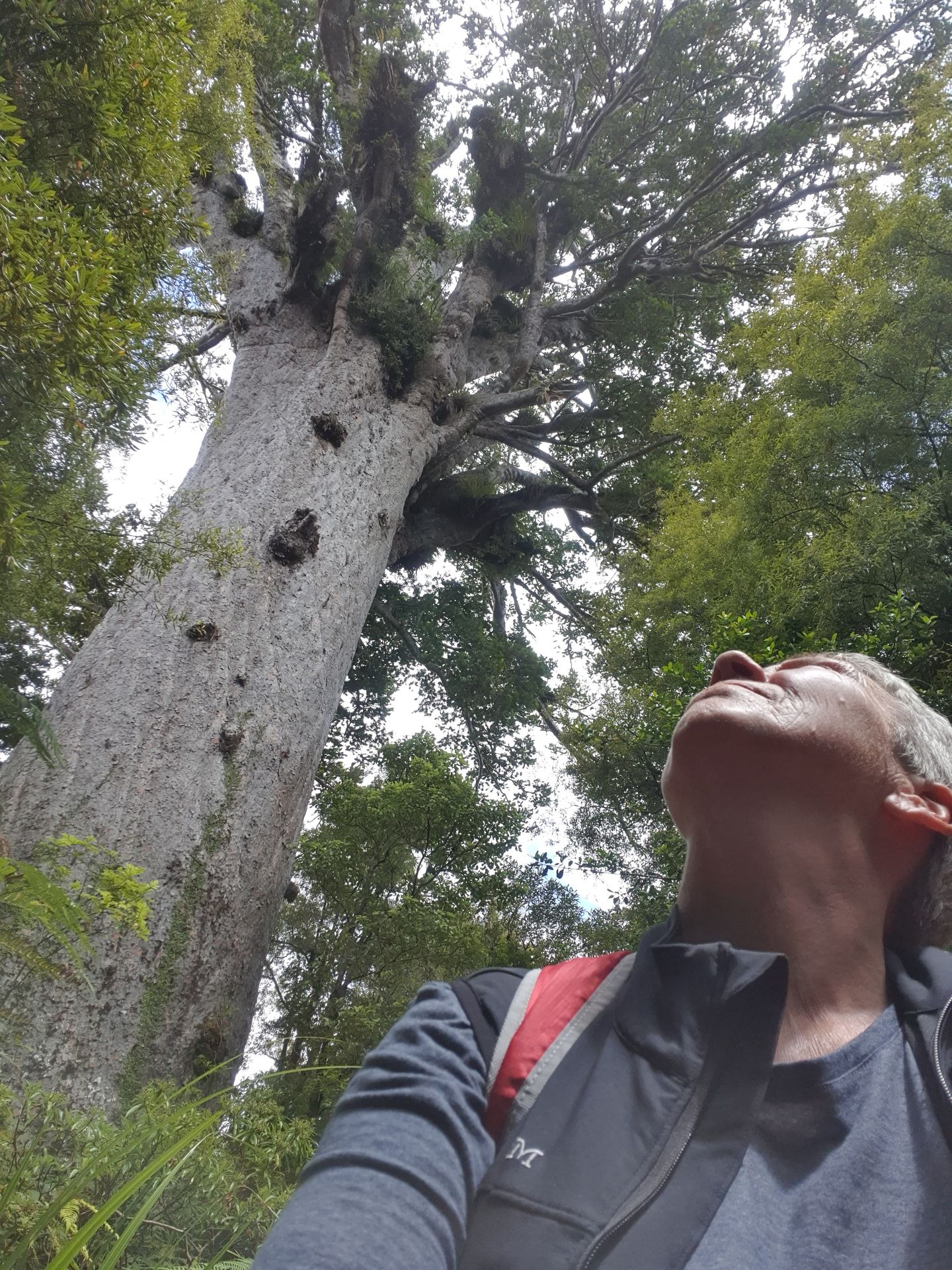
'Kauri Dieback' - the kauri dieback is a massive threat to these trees, starting in the roots. The already shallow roots of these tree giants are partly infected by a fungus that cannot yet be treated. The kauris are actually endangered by this. Since spores are also carried away by humans, e.g., in the soles of our shoes from the forests, they are also transported to new locations. Through rain, these spores enter the soil and the roots, infecting them and spreading along the lower trunk, cutting off the water and nutrient supply to the crowns. As the spores flourish and spread further in the rain, this disease is so insidious. To prevent the spread by humans, these elaborate cleaning systems are set up before and after visiting forests with kauris (see the post from Whangarei on the first day).

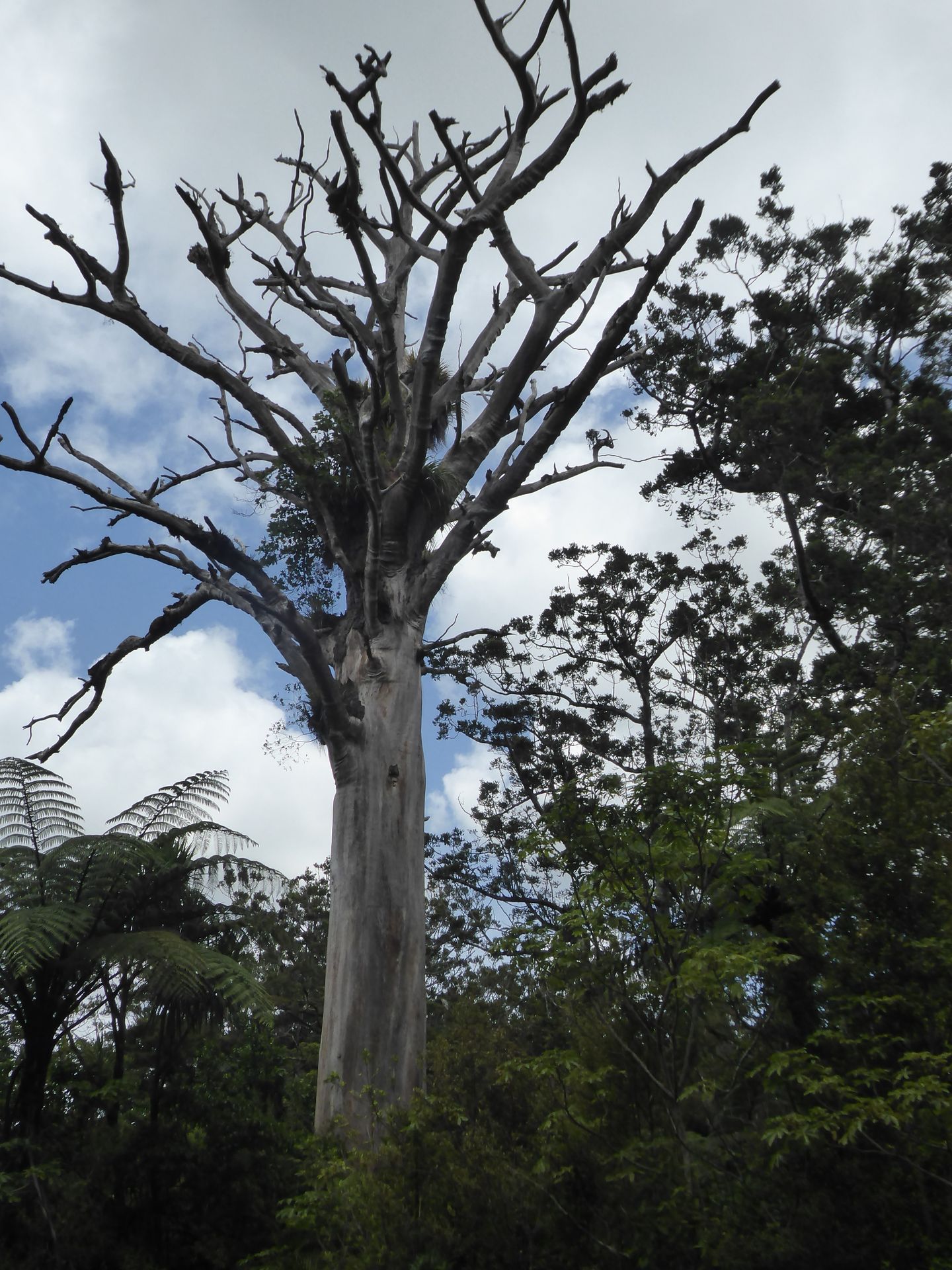
I see dead kauris as white skeletons shortly afterward on the side of the road.

Today, I want to stay overnight at Trounson Forest. Maybe I'll be lucky with a kiwi tonight? The Top10 Holiday Park Kauri Coast is located in a valley east of the highway and should offer kiwi night tours. Unfortunately, it turns out that they only do them from February onwards, not in the current season. So around 9 p.m., I'll drive the approximately 5 km to Trounson Park and walk around in the dark. Today, however, I'm wearing 2 pairs of pants so that the annoying mosquitoes won't bite me.
I set up my camp at 4 p.m. I can sit in the sun until 5:30 p.m., then it gets too cold. So put on a sweater again, roll up my pant legs... The diary is almost finished. Now I just need to sort pictures from three cameras, save them on my tablet, filter out today's selection, insert them, upload them - and then I'll cook. A day between two coasts with hills, 5 million year old boulders, white beaches, tall dunes, dense jungle, and a 2000 year old tree. That's New Zealand for you ❤️🙂
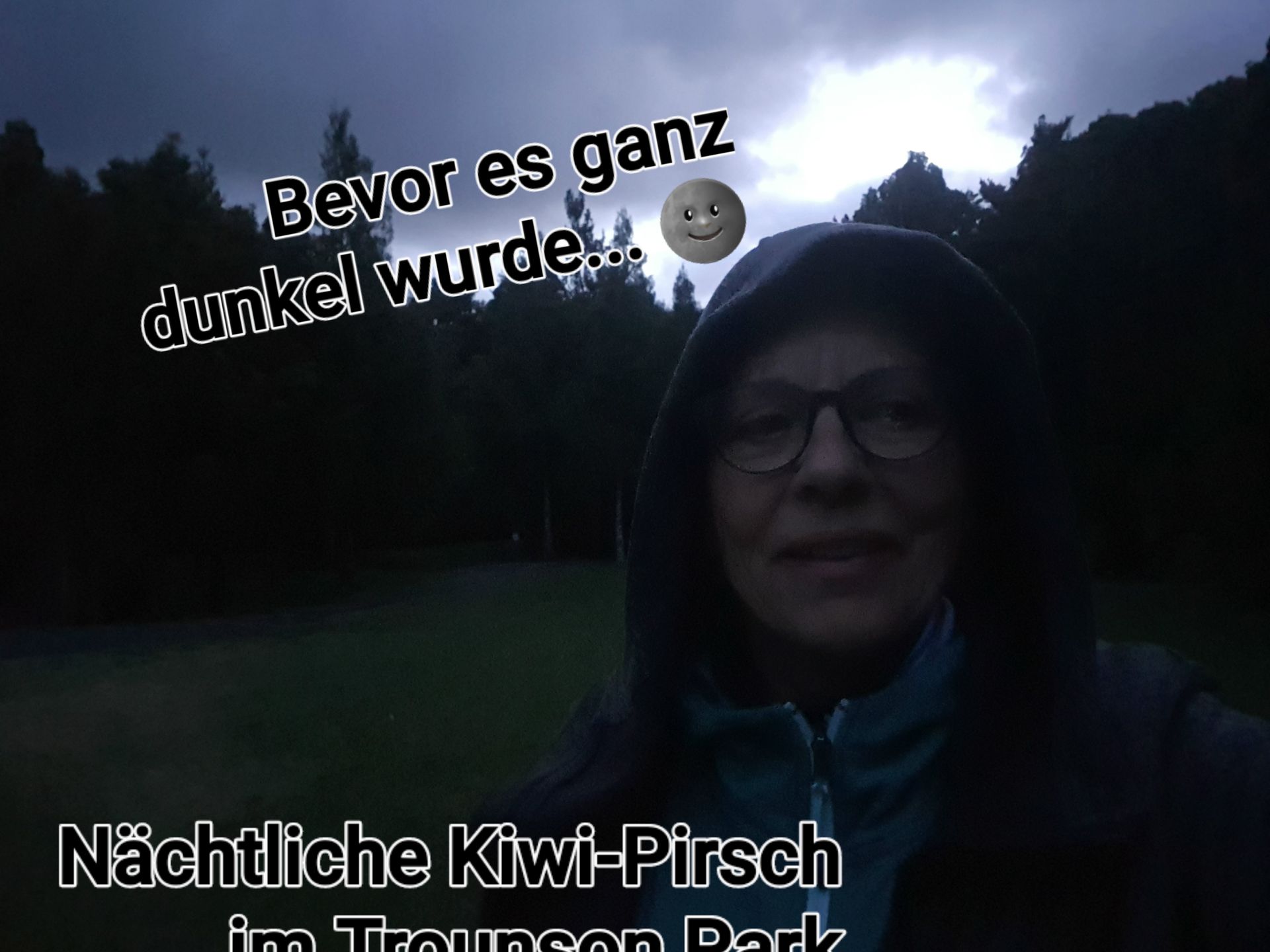
With fading light, I reach the parking lot at Trounson Park. I put on everything I have, take my flashlight with the red filter, and make my way into the forest. It's soon completely dark, and fortunately, it's almost a full moon, so that you can eventually see something in the dim light. There are very few people around, fortunately. Most are silent or whispering, and almost all have red lamps. The walking trail mostly runs on planks above the ground. Suddenly, there's an incredible rustling next to me, and my flashlight beam falls on a large possum that skillfully walks along the railing next to me and doesn't mind my presence at all. It startled me, but I also hoped that a kiwi would come this way. But no luck. Somewhere in a dark spot, I wait for at least half an hour with another woman. We start talking in whispers afterwards. She is from Spain. We continue to walk together in the dark for about 1 hour, sit silently on a bench for a while, and hear a male kiwi calling - but we don't see any. Eventually, I give up, she stays - I go back to the car and drive the 5 km back to the campground with my high beams on. There are masses of possums by the roadside, and I don't feel like colliding with a single one. The Spanish woman - if I were to meet her tomorrow - I wouldn't recognize her. We didn't actually see each other. Only heard each other ;-)
ជាវសំបុត្រព័ត៌មាន
ចម្លើយ

របាយការណ៍ធ្វើដំណើរ នូវែលសេឡង់
